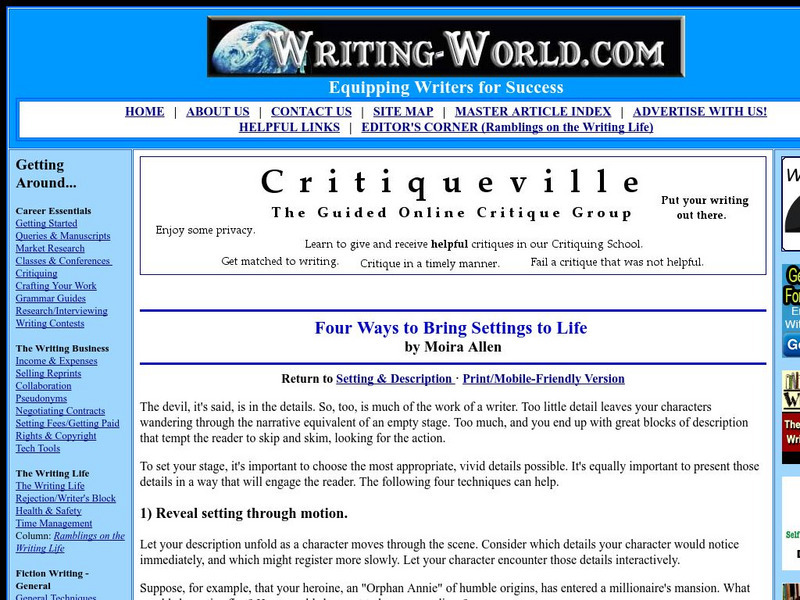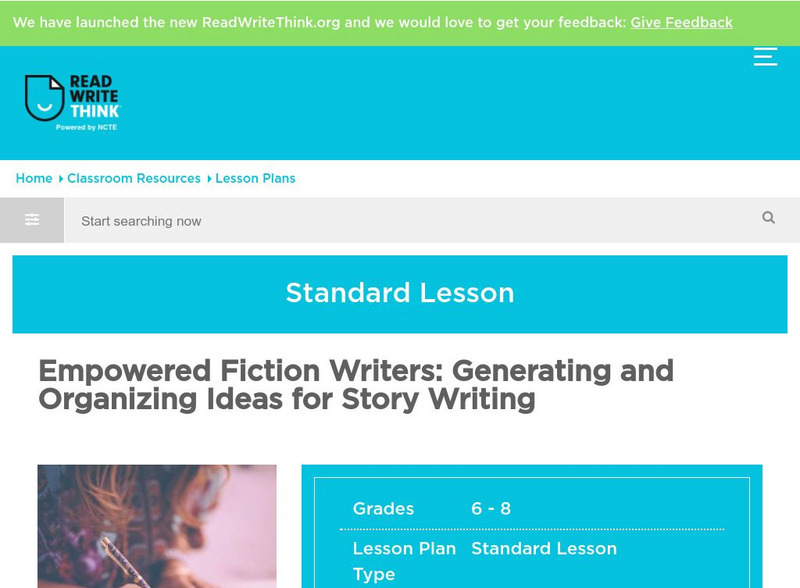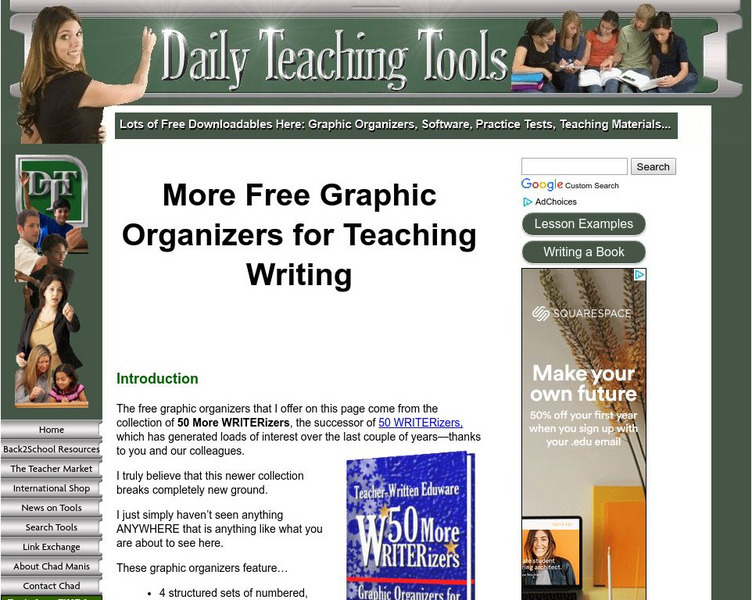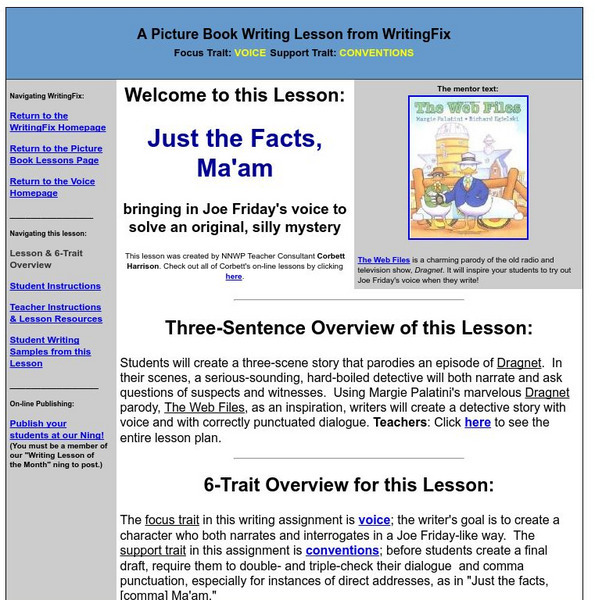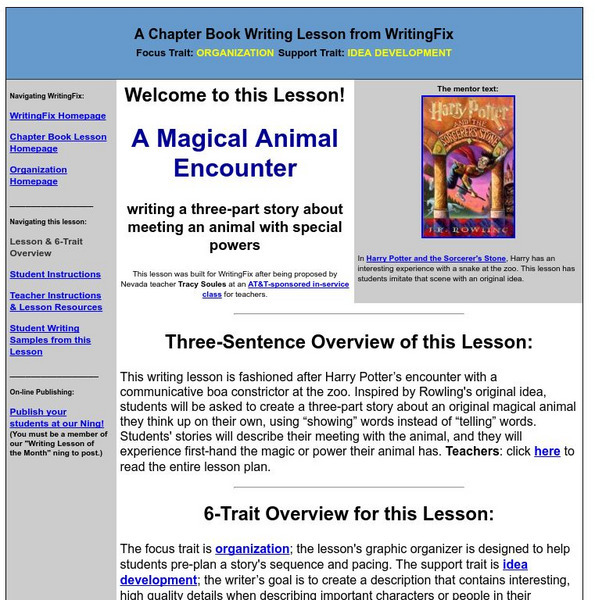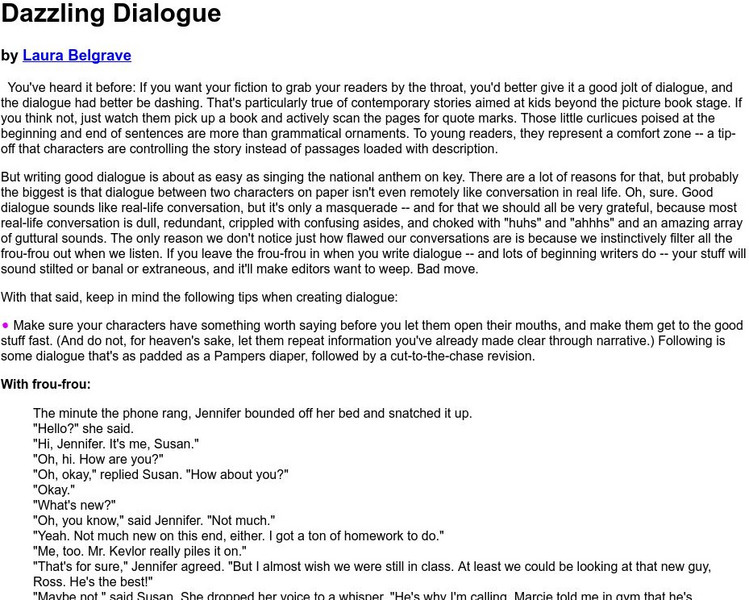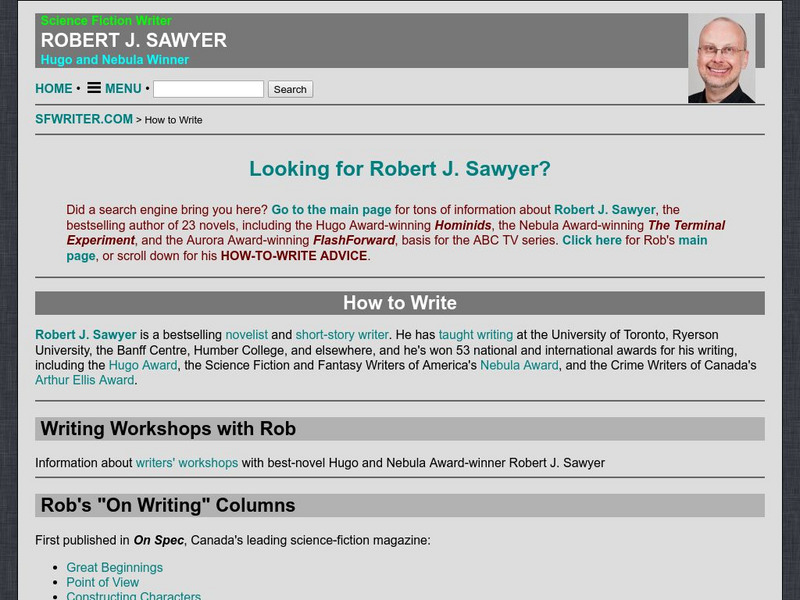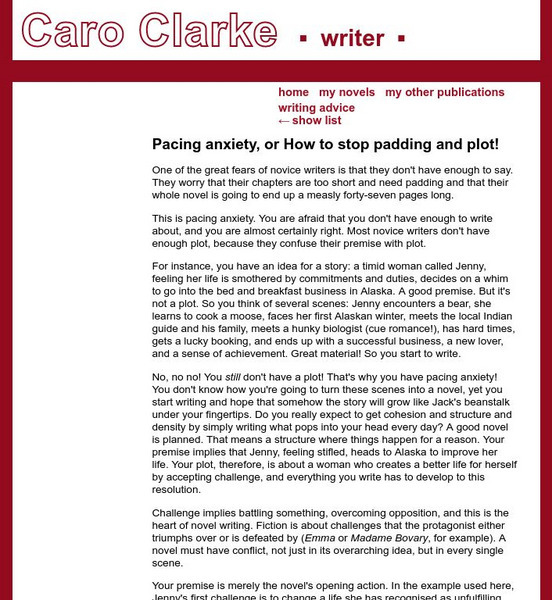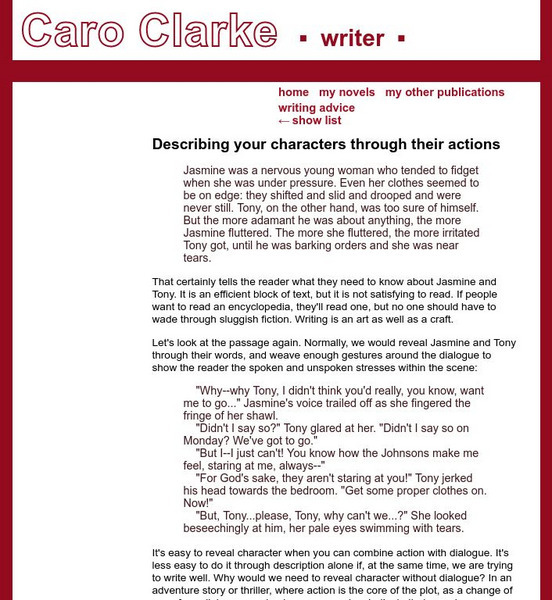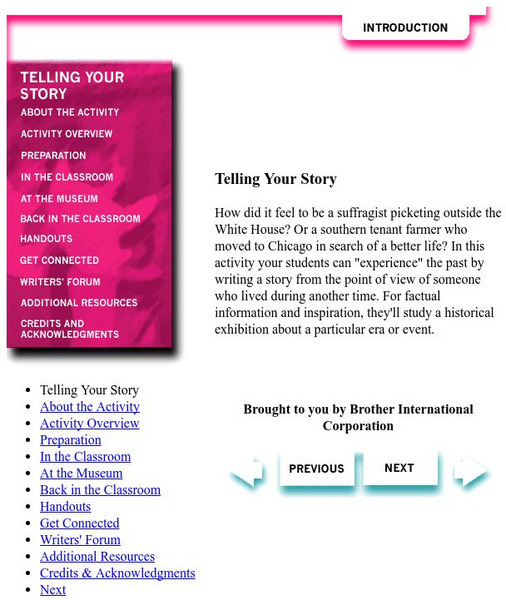Curated OER
Silent Spring
Students read background information about Rachel Carson found on the listed website links. They analyze and answer questions about her work and how it is linked to science then they research pesticide usage and alternative methods.
Curated OER
Cloud Databases
Learners complete a unit on clouds and a report about one type of cloud. They collect data through observation about different types of cloud cover and then create a spreadsheet to reflect their observations over a 2 week period.
Curated OER
Underground Travelers
Students are introduced to new vocabulary associated with the Underground Railroad. Using primary sources, they evaluate the railroad's impact on society in the past and today. They also make a judgment about the morality of the railroad...
ReadWriteThink
Read Write Think: Blending Fiction and Nonfiction
Contains plans for four class periods that ask students to blend narrative and expository writing after reading fiction and nonfiction selections. In addition to student objectives and standards, these instructional plans contains links...
Other
Writing World: Four Ways to Bring Settings to Life
A great resource outlining four major ways to make settings appear more real and genuine in fiction. Deals with themes such as motion, experience, mood, and the senses. W.11-12.3d Sensory/precise lang narratives
Other
Fiction Writing Tips: Creating a Vivid Setting
Some excellent guidelines to consider when evaluating your setting in a short story or novel. Discusses the importance of setting, some examples, as well as practical advice in setting your story. W.11-12.3d Sensory/precise lang narratives
ReadWriteThink
Read Write Think: Choose Your Own Adventure: A Hypertext Writing Experience
This series of lessons involves student collaboration, writing and analytical skills, technology and imagination. While the lesson suggests use of FrontPage, it would also be possible to use a number of other authoring tools.
TED Talks
Ted: Ted Ed: How to Write Descriptively
The point of fiction is to cast a spell, a momentary illusion that you are living in the world of the story. But how do writers suck readers into stories in this way? Nalo Hopkinson shares some tips for how to use language to make your...
ReadWriteThink
Read Write Think: Empowered Fiction Writers: Generating and Organizing Ideas
Do your students' minds go blank when they confront a blank piece of paper? Speedwriting can help them get started with writing as well as come up with topics to write about. They can then incorporate their key ideas and phrases into a...
Daily Teaching Tools
Daily Teaching Tools: Graphic Organizers for Teaching Writing
This Daily Teaching Tools collection provides graphic organizers for writing. Elaborate graphic organizers for the following areas are provided: persuasive essays, expository essays, paragraph writing, fiction pieces, narrative writing,...
Online Writing Lab at Purdue University
Purdue University Owl: Fiction Writing Basics
This resource discusses some terms and techniques that are useful to the beginning and intermediate fiction writer, and to instructors who are teaching fiction at these levels. W.11-12.3a Narratives
Writing Fix
Writing Fix: Just the Facts, Ma'am
Students read The Web Files by Margie Palatini and use the format to write three-scene detective stories of their own. Teacher instructions, student instructions, and student writing samples are provided, as well as an interactive...
Writing Fix
Writing Fix: A Magical Animal Encounter
This writing lesson is fashioned after Harry Potter's encounter with a communicative boa constrictor at the zoo. Inspired by Rowling's original idea, students will be asked to create a three-part story about an original magical animal...
Writing Fix
Writing Fix: A Chapter Book Writing Lesson: Creating a Parallel World
Inspired by the opening events in The Subtle Knife by Philip Pullman, students are asked to create an original parallel world that is similar to ours but different in certain ways. They will focus on the similarities and differences...
Harold D. Underdown
The Purple Crayon: Writing Dazzling Dialogue
This site takes you through the process of writing dialogue in fiction, demonstrating when to omit, replace, or modify your original writing. Includes several examples and gives excellent advice for young writers. W.9-10.3b Narrative...
Other
Robert J. Sawyer: Writing Workshops
This site features a list of columns written by Robert Sawyer. They include: Great Beginnings, Point of View, Constructing Characters, Show, Don't Tell, Description, Research, and more. W.9-10.3, 3a, 3b, 3c, 3e Narratives, W.11-12.3, 3a,...
Writing Fix
Writing Fix: Counting Up or Down Stories
The writer will brainstorm situations where individuals or people in a group count up or count down out loud together. Using the ending of chapter 5 of Wringer by Jerry Spinelli as a model, the writer will plan a story where someone (or...
Other
Re:fiction: Making Ends Meet: How to Write a Good Ending to a Story
This article from Re:Fiction magazine offers tips on different ways to end a piece of narrative writing.
ReadWriteThink
Read Write Think: Writing Alternative Plots for Robert O'brien's Z for Zachariah
Lesson in which young scholars are required to write an alternative plot to O'Brien's science fiction novel. Includes an interactive graphic organizer, handouts, and a rubric.
Caro Clarke
Caro Clarke: Pacing Anxiety, or How to Stop Padding and Plot!
This is the seventh installment of a series giving advice to the author who is new to writing novels. This article focuses on how to take your characters and use them and their conflicts to develop the plot of your story. W.9-10.3b...
Caro Clarke
Describing Your Characters Through Their Actions
This is the tenth in a series of articles designed to help the new novel author. This article focuses on how to develop characters through their actions instead of simply relying on dialogue and description of thoughts. W.11-12.3d...
Caro Clarke
Caro Clarke: What Is Conflict?
This is the sixth in a series of articles designed to help the new writer with their novel. This article focuses on conflict and how it effects the characters and the plot of the story. W.11-12.3a Narratives
Smithsonian Institution
Smithsonian Education: Telling Your Story
A lesson in which students gain empathy for people who lived during a historical time period by writing a first-person story with experiences that would have happened during that time.
ReadWriteThink
Read Write Think: Planning Story Characters Using Interactive Trading Cards
Students use trading cards to examine fictional characters in a story.






